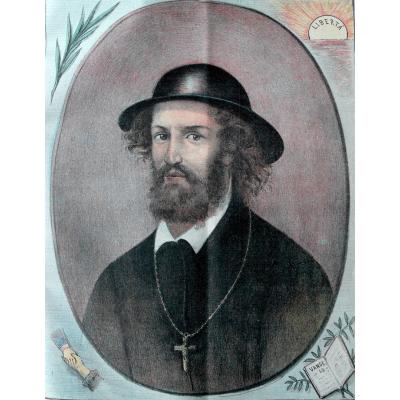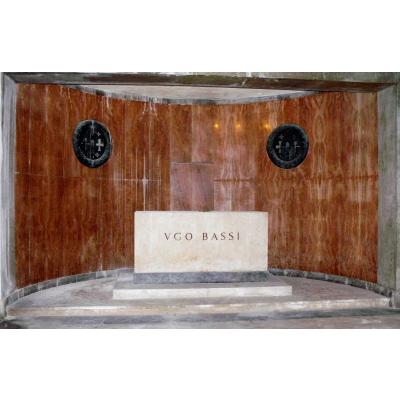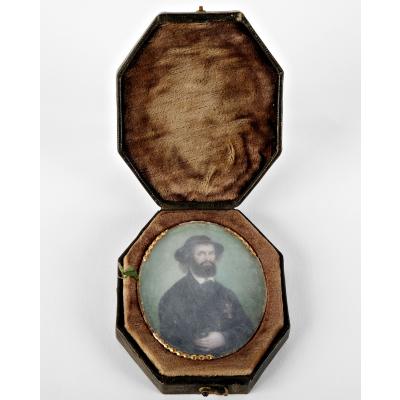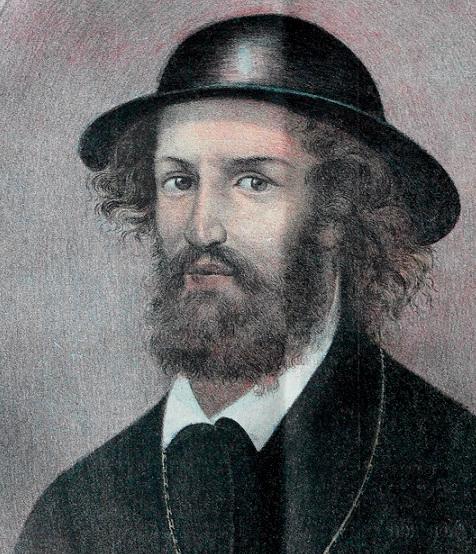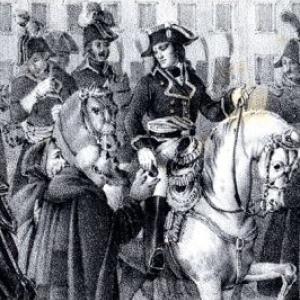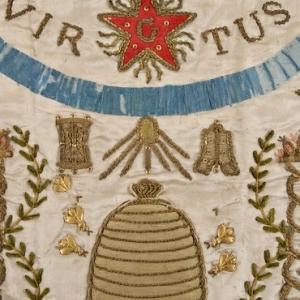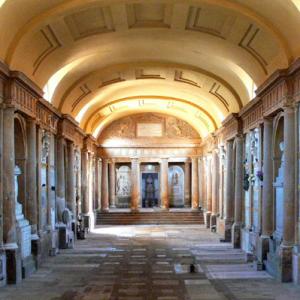Scheda
Ugo Bassi (12 August 1801- 8 August 1849), a religious and patriotic man of the Risorgimento, he was actually called Giuseppe, but he chose the name of Ugo in honor of the poet Ugo Foscolo. He was born in Cento town of Ferrara on 12 August 1801 to Luigi Sante, an employee of the papal customs and Felicita Rossetti of San. Felice del Panaro, a maid. As an adolescent during the Napoleonic era, he went to the boarding school of Barnabit in Bologna and it was in this time he was introduced to a liberal cultural environment. He remained fascinated by Gioacchino Murat’s Proclama starting from Rimini in 1815, which for the first time called for a free and united Italy. He ran away from school to enlist but he was too young, so he was refused. After his studies in Bologna, Napoli and Rome, in 1821 he was elected and pronounced the city’s chaplain. As cultural man he became well-known and was sought after as a preacher, but he often clashed with the ecclesiastical authorities and because of this he was denounced because he often critiqued on the illness of society and included patriotic themes in his sermons.
In 1848, without hesitation, he joined the volunteers who left to fight in the First War of Independence against Austria to offer moral support, in Treviso he was wounded and was then taken to Venice where he supported the Republic of San Marco. In 1849 he was in Rome, where he assisted with the birth of the Roman Republic and he was nominated as the Chaplain of Garibaldi’s Legion. This is how Bassi described his meeting with the "Eroe dei due mondi" (hero of two worlds): “Garibaldi is the hero more worthy of poems who I most hoped to meet. Our souls are bounded together as if we were sisters first in heaven meeting again on Earth.” After the fall of the Roman Republic he travelled next to Venice with Garibaldi, Anita, Francesco Nullo, Ciceruacchio, Giovanni Livraghi and the other volunteers following the General to Venice. Arriving after various adventures at San Marino, the group was divided and Ugo Bassi and Livraghi remained with Garibaldi and Anita who were by now dying. Near Comacchio, Bassi and Livraghi were captured and arrested by the Austrians and moved to Bologna. On 7 August, without any trial, they were sentenced to death and the next day they were transfered to the Certosa, executed and thrown into a pit grave under the arches 66/67, today the Marathon Tower of the Stadium. Immediately the people of Bologna wanted to pay tribute to the patriots, so much so that the Austrians, consequently, had to exhume the remains during the nights of the 18th and 19th to bury them in a secret place inside the cemetery.
It was only in 1859 that the families could relocate the bones to their family tombs in Sala delle Tombe. This is how Enrico Bottrigari in his Chronicle of Bologna (Zanichelli, 1960) remembers the 5 of August: “a government official, together with a relative of the dead and a few witnesses, unearthed the bodies and locked them in a crate, brought them to the cemetery and after issuing the final rights, they were laid to rest in their family’s sacrafogus.” A few days later, on 16 August, Giuseppe Garibaldi paid tribute to his companion by giving a speech in front of his grave. On 8 August 1940, during a propagandist ceremony for the Fascist regime, Bassi’s remains were moved from his simple family tomb to a sarcofagus located inside the memorial for the Fallen of the Great War.
Translation from italian language by Holly Bean.

